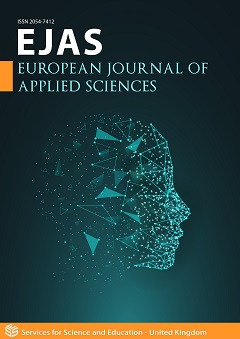Can Pashu Ayurveda Address Antimicrobial Resistance (AMR)?
DOI:
https://doi.org/10.14738/aivp.115.15717Abstract
Antimicrobial resistance is a chief hazard to human health around the globe. Antimicrobial resistance is the foremost reason of death worldwide, with the most severe consequences in low-resource settings. Overuse and misuse of antimicrobials, disease incidence, mortality, length of stay in hospital and health-maintenance expenses all contribute significantly to antimicrobial resistance. Cattle and buffaloes make for more than half of India's livestock population. They are afflicted with a variety of contagious ailments. More than 80% of our dairy producers are marginal and landless, and they cannot afford the pricey standard antimicrobial treatment. Antimicrobials are medications that destroy or control disease caused by microorganisms such as bacteria, viruses, and parasites. Antimicrobial resistance arises when bacteria evolve or acclimate themselves to resist antimicrobial drugs making treatments unproductive. The use of Ayurvedic Veterinary Medicine can reduce the usage of medications, particularly antibiotics, as well as their residues in milk, which will go a long way toward preventing the establishment of antimicrobial resistance, a critical public health issue. Ayurvedic Veterinary Medicine is an alternative treatment strategy that employs medicinal plants and simple spices found in the home. It is a cost-effective, efficacious, and farmer-friendly choice for managing common bovine ailments such that losses due to these disorders are minimised, and at low costs. The NDDB has produced pamphlets and video clips to promote the use of AVM for more than 20 diseases. To popularise the concept across the country, intensive propagation activities are being launched by the Department of AYUSH, DAHD, State AH Departments, Milk Federations, Milk Unions, and others. Understanding the AMR burden and the most often used pathogen-drug combinations is essential for making educated and location-specific policy decisions. Development of microbiology laboratories, public awareness, and increasing the use of Ayurvedic veterinary medicine may pave the road to resolving this critical public health issue.
Downloads
Published
How to Cite
Issue
Section
License
Copyright (c) 2023 S K Kumar, Santwana Palai, Subrahmanya Kumar, Vijay Magare, Udaykumar Mogale, Subhash Gorhe

This work is licensed under a Creative Commons Attribution 4.0 International License.






